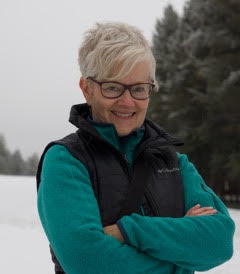When you meet someone new, they always ask what you do. This makes things very awkward when you retire. When I first left work, I used to say that I worked in the evaluation field, but as time goes on, I’m less likely to say that. For a start, evaluation doesn’t sound terribly interesting, even though it’s fascinating (really truly it is), but I feel as though I can’t reasonably claim to be an evaluator when I no longer show much interest in the field and haven’t even bothered renewing my membership to the Australasian Evaluation Society.
I’m still reluctant to say that I’m retired, mainly because “being retired” isn’t actually a job and it also sounds very boring. Now before all you retired folks start telling me how busy and active you are, (I know, you’ve never been this busy in your life before, how did you ever have time to go to work?), I’m talking here about perceptions and not real-life.
Despite being happily retired, I dislike not having a role or job title. Even though most people say they hate being labelled, it’s a very easy way to establish a conversation without having to find out if you both enjoy reading or cooking. (Although frankly, if you don’t like either of these, we are unlikely to be friends).
I’ve recently started calling myself a writer, but it has its own pitfalls. I don’t know why it took me so long, given that I’ve been writing for years. I’ve written blog posts, reports, presentations, learner guides and web copy. Many years ago, I wrote a very short children’s book, which was published as a school reader, much to my joy and amazement. I even had a personal essay published in the national newspaper, before I knew how hard it was to get published in a newspaper. I sent my piece, “A feminist goes to weight-watchers” off to the Sydney Morning Herald one day, and it magically appeared in a first-person column they ran in the Tuesday edition. No money changed hands, but I was thrilled to bits.
I went looking for the clipping the other day and couldn’t find it in any of my numerous ‘writing folders’, but I managed to find a copy in a digital newspaper archive, so I downloaded it and filed it away safely in case anyone ever wants to read it. Maybe I should add a page on this blog and call it published writing. It would be a very short page…
So, although I’m comfortable calling myself a writer, I dread the next question which is, “what do you write?” I generally mumble something about being a blogger, or writing stories for children, but I usually avoid saying that I write creative non-fiction because no-one ever knows what that is. I would love to say that I write personal essays, but I would need to have published my work somewhere this century. So far, I’m not doing very well in that department.
It’s not that I’ve been spectacularly unsuccessful with my submissions, I just haven’t been brave enough to submit my work anywhere apart from Brevity magazine, and it’s very, very hard to get published there.
Now that I’m officially retired, I have plenty of time to write and I’ve started a few essays, but none of them are really polished enough to send anywhere. When you stop submitting your work, your confidence drains away, and you become less and less likely to send anything out.
Other writers say that you need to keep trying, so I guess that’s what I’ll do. In the meantime, I’ll just keep practising here because every bit of writing helps you hone your skills and you know what they say about practice.









 By Marla Mulloy
By Marla Mulloy